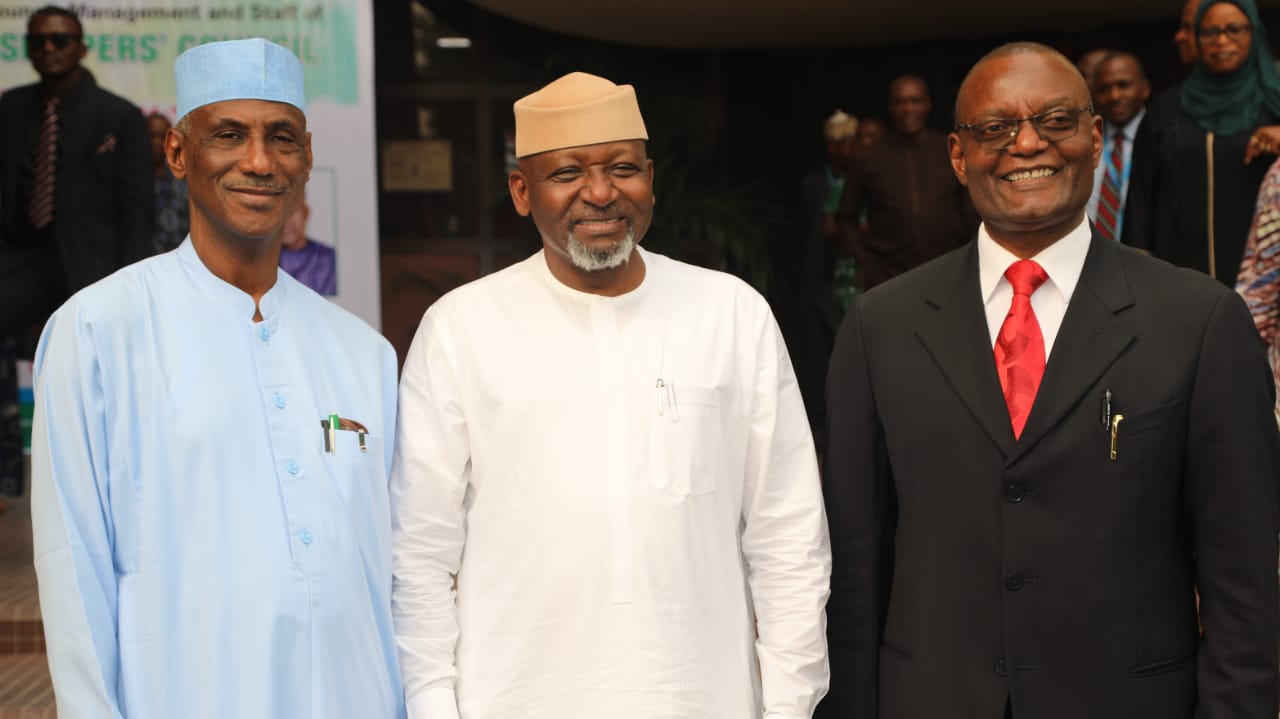By Joshua Yousouph
The Federal Government has appointed and directed the Nigerian Shippers’ Council (NSC) to establish a Port Community System (PCS) before the end of the current administration in May.
Minister of Transportation, Mu’azu Sambo made this call during a working visit to the Council’s headquarters in Lagos on Friday.
While examining the achievements of the Council so far, Sambo lamented the absence of a Port Community System in the nation’s maritime space. He noted that countries like the Republic of Benin have a working Port Community System in place, adding that this should be a big shame and challenge to Nigeria.
The Minister charged the NSC to look out for countries that have working PCS and replicate such templates in Nigeria. He stressed that the NSC should establish the PCS before the end of this administration by May 29.
Sambo decried that the Nigerian Ports Authority should not have recommended to the ministry the renewal of the leases of terminal operators without the imput of the Shippers’ Council. He urged the council to take the bull by the horn by ensuring that the leases of defaulting terminal operators are not renewed without the Council’s input.
In his words: “You are the regulators of the Nigerian Ports Authority (NPA), the Nigerian Maritime Administration and Safety Agency (NIMASA) and other agencies that have anything to do with the port. The responsibility is on you to ensure we have a port community system. I think it is because we are not able to place the responsibility on somebody that we have not been able to achieve the PCS.
“Next week, I will call you and other agencies and roll-out the issue because we must have a PCS working for us in Nigeria before the administration comes to a close. This is a question of direct procurement, we’re not going to circumvent the law of the land. The Public Procurement Act gives us opportunity to do direct procurement. You need to coordinate as I have given you the role today.
“Renewal of leases should be done terminal-by-terminal, original agreement, Key Performance Index (KPI) should be looked into, to know if they have met with the development plan, cargo traffic, revenue and others, the obligations incumbent on them, how they have performed, everything should be clear and if they have achieved what was set out to achieve,” he said.
“I am going to give you this role, so start getting ready for it, get the concession agreement that was signed in 2006, identify all the KPIs now, lock everything in your system and be ready to work,” Sambo said.
Speaking earlier in his opening speech, Mr Emmanuel Jime, Executive Secretary of the NSC noted that successful commissioning of the Dala Inland Dry Port and Funtua Inland Dry Port as a port of destination are some of the low hanging fruits being faced by the council.
Jime stressed on the inadequate funding of the council adding that it has not been able to make it perform optimally as it should.
He called for the Minister’s support to ensure the Council has access to the one percent freight stabilization levy which according to him is the major source of revenue to the council. He also harped on the need to fast track the amendment of the NSC Act
“I told you that we needed to complete the process of the development of the inland dry port infrastructure that we are putting in place and promoting, of which I mentioned Dala and Funtua Inland Dry Ports and an update on other key transport infrastructure that we are promoting.
“We accompanied you this month together with the President to deliver your first low hanging fruit in the industry, the Dala dry port and also the Funtua as the port of origin and destination. These are key transport infrastructure that will aid the policy of the Federal Government as regards exportation” Jime said.















